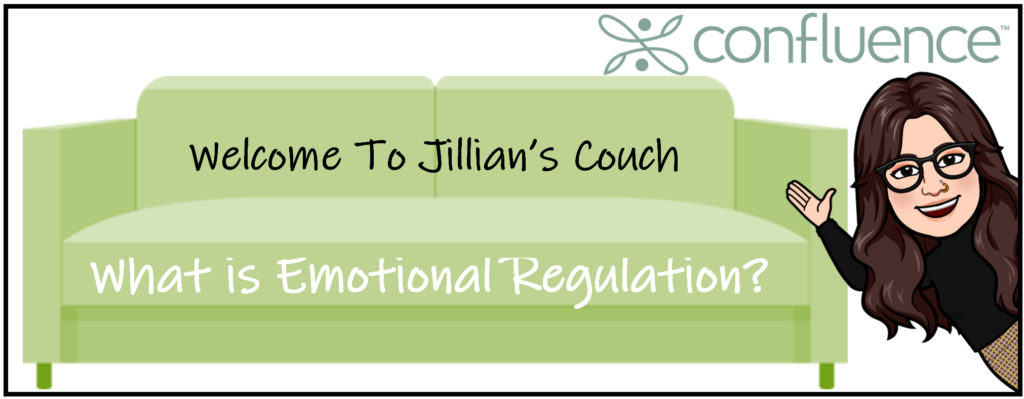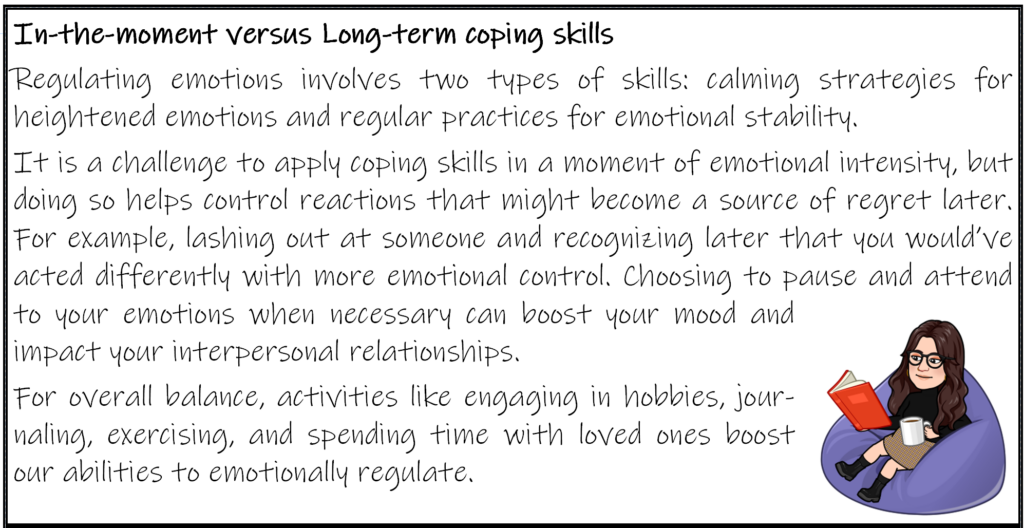
Emotions play a significant role in shaping our daily experiences. They impact our perceptions, influence our decision-making and affect our interactions with others and the environment. At times, emotions can become overwhelming, leading to unpredictable behaviors that may be difficult to manage without being attuned to our internal experiences.
Emotional regulation refers to recognizing and understanding various emotional states, naming those emotions, and determining the appropriate ways and contexts for expressing them. For instance, if you experience frustration after someone cuts you off in traffic, emotional regulation involves acknowledging that frustration, recognizing the impulse to react (such as wanting to scream or lash out) and understanding an impulsive reaction might not be the most productive method for addressing the feeling. Emotional regulation provides relief, builds resilience, enhances decision-making and turns challenges into growth opportunities.
So, how can we better manage our emotions in such situations? Let’s explore some effective methods of emotional regulation. This is not an exhaustive list and I encourage you to discuss this topic with a therapist or counselor for more support and how to personalize this for yourself.

Strategies for Emotional Regulation
Box Breathing: Inhale for 4 counts, pause for 4, exhale for 4, and pause for 4. Repeat 3-5x. This intentional deep breathing activates your body’s calming response.
Name Your Emotions:
Identify your feelings as they arise, try to name what it feels like in your body. Recognize that it’s okay to feel emotions like anger but be mindful not to act impulsively. Be curious about a productive way to express the emotion.
Challenge Negative Thoughts: Question the validity of your thoughts and consider alternative perspectives to reshape your emotional responses.
Practice Mindfulness: Engage in mindfulness activities like meditation or journaling to enhance self-awareness and stay present.
Build Resilience: Strengthen emotional regulation through gratitude, positive self-talk and reframing challenges.
Seek Support: Talk to trusted individuals for support and empathy.
Jillian Thony, MAMFT
Marriage and Family Therapist
akconfluence.com
Call/text 907.313.4433


